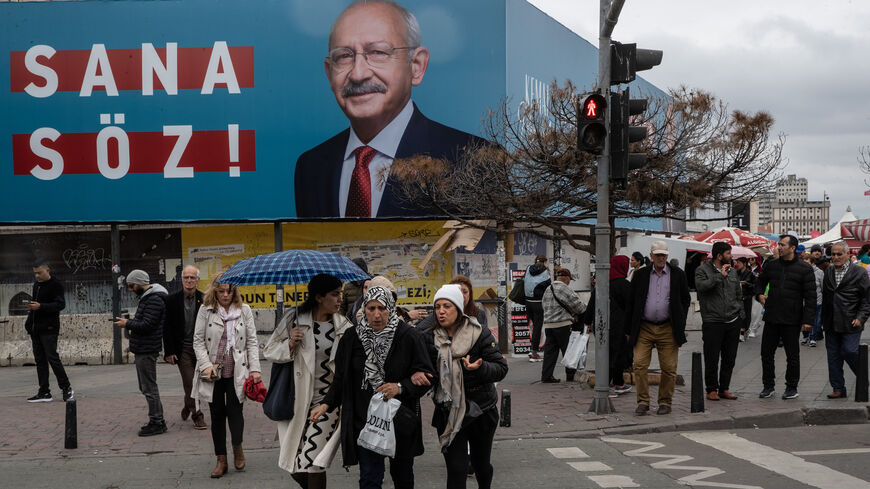DUBAI — Several Gulf Arab states have a large stake in Turkey’s presidential elections, and stand to have their years-long investments scrutinized if President Recep Tayyip Erdogan loses his 20-year power streak.
Saudi Arabia injected $5 billion in Turkey’s central bank in March to help strengthen the country’s currency after the two massive earthquakes that devastated its people and economy the month before.
That same month, the United Arab Emirates (UAE) signed an agreement with Erdogan to increase bilateral trade to $40 billion by 2028. In June 2022, the UAE’s smallest of three main sovereign wealth funds — investment firm ADQ — bought Turkish pharmaceutical company Birgi Mefar Group.
Soner Cagaptay, director of the Turkish Research Program at the Washington Institute for Near East Policy, envisions that if Turkey’s government changes, so will Gulf influence in the country.
Kemal Kilicdaroglu, leader of the Republican People’s Party (CHP) and Erdogan’s presidential competitor, already announced that he will review these Gulf country purchases in Turkey, Cagaptay told Al-Monitor.
“He thinks that they were not competitive. That these were free giveaways to Gulf countries so that they would reset ties with Turkey after years of political disagreement,” he said, adding that Erdogan desperately needs Gulf investment to help repair his country’s economy and his economic credibility.
Relations between Turkey and Gulf Cooperation Council (GCC) countries have been tumultuous, and suffered for about 10 years between 2010 and 2020 due to both ideological and personal reasons, Cagaptay noted.
Erdogan had blamed the highest levels of the Saudi government for the 2018 murder of Saudi journalist Jamal Khashoggi. Under Erdogan, Turkey also supported the Muslim Brotherhood in Egypt and sided with Qatar during the Gulf dispute in 2017, which saw Doha accused of supporting extremism due its ties to the Islamist group and halted diplomatic ties with Saudi Arabia, the UAE, Bahrain, and then also Egypt.
As tensions between Qatar and its GCC neighbors thawed in 2021, so did Turkey’s strains with the Gulf countries. Gulf countries collectively invested tens of billion into Turkey; the UAE made a $10 billion investment in 2021 and Saudi Arabia invested a similar amount into Turkey’s infrastructure in 2022.
Qatar investments in Turkey did not waver during this period given their more aligned ideological stance, said Cagaptay. Qatar pledged $15 billion in direct investments in Turkey in 2018, and last year, the country’s sovereign wealth fund agreed to acquire about 25% of the $160 million Eurasia tunnel that connects under the Bosporus bridging the Asian and European sides of Istanbul.
Turkey’s 2023 presidential elections are predicted to affect Qatar disproportionately depending on the outcome.
“While Turkish-Emirati and Saudi ties will have a minor downgrade, Qatari ties will have a more significant one,” Cagaptay told Al-Monitor, about an Erdogan loss.
Long term benefit?
Garo Paylan, deputy from the People’s Democratic Party which is opposed to Erdogan in the elections, said a Kilicdaroglu win could actually benefit Gulf countries more in the long run given the region’s management of their sovereign wealth funds.
“They’re running those funds with professionals and are using rational policies,” said Paylan, to make investments that yield actual future returns. He compared this with Erdogan’s “give me this, and I’ll give you that” tit-for-tat approach that he believes has led Turkey to its current predicament. This method, explained the member of the Turkish Parliament's budget committee, is unsustainable given that Turkey’s central bank reserves are nearly depleted.
“Gulf states are smart and know not to invest in a sinking ship anymore,” he added.
Kilicdaroglu is likely to take a more structured approach to fiscal policy to gain trust from the West and build a more secure economy for Turkey that could appeal to both sides of the transcontinental nation and attract more foreign direct investment.
The European Union is Turkey’s largest merchandise import and export partner by far, according to the European Commission. Turkey received 26% of its imports from the EU and exported 41% of its goods there in 2022.
Turkey is the EU’s sixth biggest trade partner, making up more than 3% of its world trade in goods in 2022, valued at $250.34 billion.
With Kilicdaroglu reforms, Paylan said Western governments, including the United States, are going to be more likely to invest in Turkey, but will also not close any doors with the Gulf region. Business will just be done differently, he noted.
"It’s not going to be government to government favor exchanges anymore where nobody trusts the other. They are going to have more fiscally responsible relationships with the Gulf that are measured by growth — the same way they do with British, French or US funds,” Paylan said.
He told Al-Monitor that Kilicdaroglu’s CHP is more democratic than Erdogan’s Justice and Development Party, but it actually leans more nationalistic in essence. Kilicdaroglu has given discriminatory speeches against Arabs because of the Syrian crisis and refugees, said Paylan, which is a polarizing matter for Turks.
He won’t let this affect Arab tourism and government relationships, he added, but it might affect how the people vote on May 14.
Ultimately, said Paylan, in this election Turkey is going to decide if it will be ruled by one man (Erdogan) or by professionals with methods that will appeal to the West and Gulf Arab states alike.


.jpg?h=484aaada&itok=l9O0K7bm)




